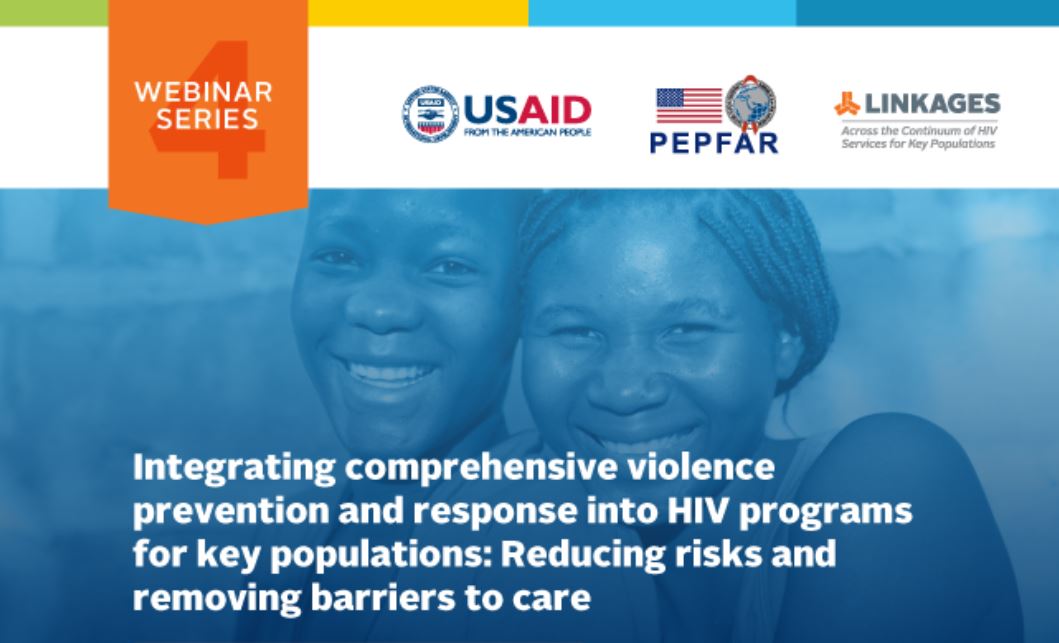Event Date
Webinar hosted by the LINKAGES project as part of the Key Populations: Evidence in action series.
To access the audio recording of the webinar, please click here.

On March 22nd, the USAID– and PEPFAR-supported LINKAGES project hosted the fourth webinar in a webinar series entitled Key Populations: Evidence in Action. This webinar explored why addressing violence is a necessary component of high-quality HIV service delivery programs for key populations. It featured a range of effective approaches to integrating violence prevention and response activities into HIV programs for key populations, including strategies for community-led crisis response, engaging the police and justice sector, and meeting victims’ post-violence health and psychosocial support needs. The webinar also included a discussion of adapting what works in one context for scale-up in another.
Rose Wilcher, FHI 360/LINKAGES Knowledge Management Advisor
Moderator
Tisha Wheeler, USAID
Setting the stage: Why HIV programs for key populations must invest in violence prevention and response
Michele Decker, Johns Hopkins Bloomberg School of Public Health
Preventing and responding to violence in HIV programs for key populations: Reviewing the evidence base of what works and applying lessons learned in Cameroon
Clint Trout, Heartland Alliance International
Key population-led models for providing legal and mental health services to people who inject drugs and transgender victims of violence in Nigeria
Robyn Dayton, FHI 360/LINKAGES Gender Advisor
Health and justice for all: Lessons learned from integrating HIV and violence response services for female sex workers, transgender women, MSM, and people living with HIV in the Dominican Republic
Parinita Bhattacharjee, University of Manitoba
Crisis response – a vital element of violence prevention and response for female sex workers: Reflections from India and an adaptation in Kenya
This webinar series is intended to be a platform for (1) sharing state-of-the-art knowledge, emerging evidence, and promising practices for achieving greater impact on the HIV epidemic through programs for key populations; (2) addressing pressing questions and controversial issues from the perspective of key population experts and community members; and (3) fostering dialogue among a broad set of partners working in key-population-focused research, programming, and advocacy.
The webinars will cover a range of topics, including introduction and scale-up of HIV self-testing and pre-exposure prophylaxis for key populations; cascade monitoring and data use; information and communication technology-based interventions; effective strategies for addressing violence, stigma, and discrimination; differentiated models for delivering antiretroviral therapy; and community empowerment.
This webinar series is open to anyone interested in key populations, including program implementers, researchers, policy-makers, advocates, funders, and community members.
